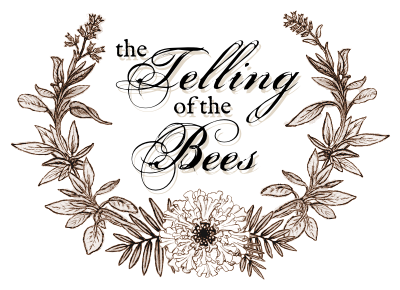Well Did You Ever Make Colcannon…

Colcannon (Irish: cál ceannann, meaning “white-headed cabbage”) is one of my signature dishes, I am known for it. Friends wait all year to sample this incredible mash prepared lovingly by me every March, 17th. I’m all for a yummy boiled New England dinner (Corned Beef and Cabbage), but I need to get down to truer Irish roots on St. Patrick’s Day. Chalk it up to my dismay over having unwittingly chosen the “Pagan Persecutor” as my patron saint as a wee Catholic girl and then growing up to be a bit more like one of those “Snakes” Patrick drove out of Ireland, as it turned out. I just need something a little more authentic to celebrate my heritage on that wily day. The soothing and delicious combination of potatoes, allium and cabbage is so damned good there’s even a song to celebrate it!
This is a peasant dish and as such it is one of the most delicious things one can ever eat. I prefer to play most recipes by ear, much as a peasant likely would, but just for my readers I wrote this one down. If you think you might like more or less of any ingredient, by all means please adjust. Keep in mind that Russet or Yukon Gold potatoes are preferred for their high starch content and using Red or other waxy varieties will result in a very sad potato paste. The only thing I insist on for this recipe is to use Irish butter. It must be the “ould sod” that makes it taste one million times better than anything you will find from your local dairy, unless of course, you happen to be lucky enough to be in Ireland!
Colcannon
Ingredients:
13 Large Russet Potatoes
1 Medium Cabbage
2 Large Leeks
1 LB Butter (Use Kerrygold Pure Irish Butter!)
Pint of Cream
Pinch of Nutmeg
Salt and Pepper to taste
Scallions for Garnish
Instructions:
This recipe serves 8-10 people and still leaves some for leftovers which you will surely want. To make a smaller batch simply halve the recipe and use 6 or 7 potatoes instead and so on. You’ll need a mighty big pot for this to go all together in. If you haven’t got one go ahead and use a big baking dish or casserole for the final heat through in the oven, just adjust the time so you don’t dry it out.
Peel and dice (medium size) the potatoes and add to a large pot. Add water to the potatoes making sure they are covered by at least an inch. Add about a teaspoon of salt and bring the water to a boil. Once the water is boiling reduce heat to simmer and cook for approximately 15 to 20 minutes. Diced taters take very little time to cook and you’ll want to be very careful not to overcook these. Check them for doneness often after about 13 minutes. When a fork easily pierces the potato it is ready. Set the potatoes aside to drain thoroughly, but reserve a cup of potato water in the event you may need it for the mash.

Break the cabbage down by making incisions around the core on the bottom and then holding from the top, slam the core side down onto the countertop. This will remove the pithy core. It may take a few good raps to get it out. Continue by then slicing the cabbage in half and then into 1 inch thick slabs. Boil the cabbage for approximately 8 to 10 minutes. Again take care not to overcook the vegetable. Check for doneness frequently. The texture should be soft, not too crunchy and not mushy. Set the cabbage aside to drain.

Slice leeks into ¼ inch disks and place into a large bowl with water to clean all of the sand out of them. Separate the rings as much as possible for optimum results. Once the leeks are cleaned and the water is strained they are ready to be cooked. In a large pot add the cream and ⅓ of the butter. Over low heat cook the leeks, cream and butter until the leeks are soft and have released their flavor, about 5 minutes. Stir in a pinch of nutmeg.

Mash the potatoes in a mixer or by hand. Add ⅓ of the butter as you go and bear in mind these potatoes should be slightly lumpy in the end. Take care not to overwork the potatoes or the texture can turn into something less than delicious. If necessary use the reserved potato water to keep the mash going smoothly, but avoid adding too much because the leek mixture and the cabbage will also be introducing liquid to the potatoes and we’re making a mash not a soup! Slowly add the leek and milk mixture into the potatoes and mix together. Add salt and pepper to taste.

Once the potatoes are adequately mashed and the milk/leek mixture has been incorporated begin to gently fold in the cooked cabbage. Thoroughly mix everything together taking care to preserve the lumpy texture of the potatoes and avoid turning the cabbage to mush. Dot the top of the Colcannon with the remaining ⅓ of butter, cover and put into a 325 degree oven to heat completely through, about 25 minutes depending on how deep your pot is.

For the garnish: Slice scallions into ⅛ inch slices and add a pat of (more!) butter on top if your little heart desires. This dish is amazing hot out of the oven, cold out of the refrigerator and even reconstituted into potato pancakes.
“Ith leat!” Tuck in! Or as they used to say in Connemara, “Súch Dé oraibh,” the sustenance of God to ye!

